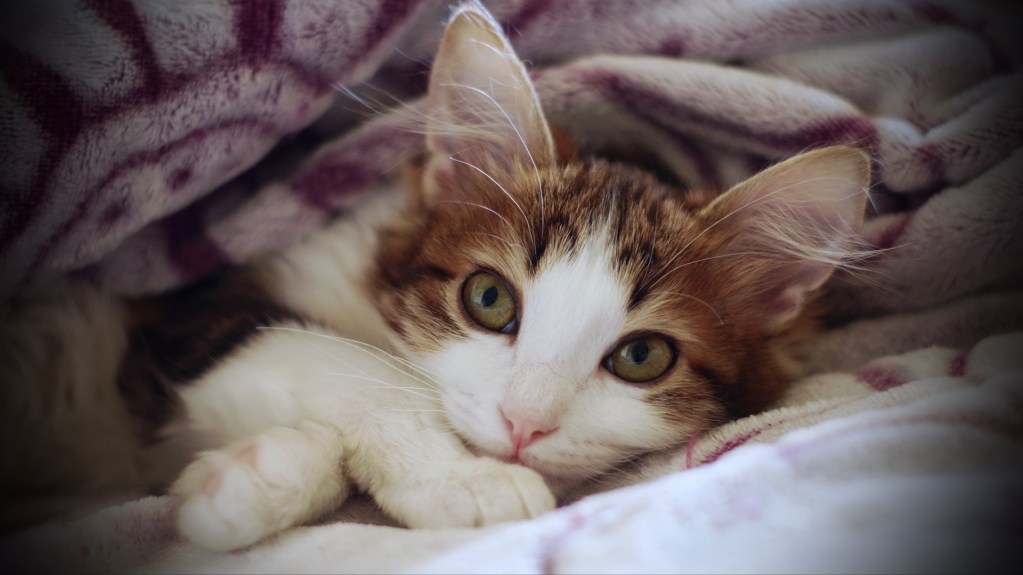Boarding pets is often a necessary choice when you’re traveling for work or vacation, but some pets take to boarding more easily than others. Boarding can be particularly stressful for cats, and many cats don’t handle busy, loud environments and change well. If you know that you’re going to need to board your cat in the future, then preparing with certain tasks can help reduce your cat’s stress while he’s being boarded. You won’t be able to remove stress entirely, but with a little extra effort, you can make your cat’s boarding stay as low-stress as possible.
Bring your cat in for a veterinary evaluation
Start by scheduling an appointment with your vet to have your cat’s health evaluated. This health assessment can identify any potential issues your cat might have, like heart conditions, that could be made worse by the stress of being boarded. Many boarding facilities will require that your cat have a recent veterinary examination and be up to date on his vaccinations, so this appointment may be a necessary step in getting your cat ready for boarding.

Talk to your vet about medication
While you’re at that vet appointment, talk to your vet about potentially supporting your cat with an anti-anxiety medication while he’s in boarding. Pets who experience severe stress may benefit from medication, especially if your cat has had a previously negative boarding experience. Your vet can discuss medication options and pros and cons with you, and together you can make the choice that’s best for your cat.
Introduce your cat with a one-night stay
Leaving your cat in boarding for a multiweek stay can be a tough transition, especially if your cat has never boarded before. If you know that you have a long trip coming up, ask the boarding facility to schedule a shorter getting-to-know-you introductory boarding stay. Many facilities will allow a day or an overnight stay for new pets, which gives staff a chance to get to know the pets, and the pets a chance to get familiar with the facility.
If you have multiple cats who get along well, ask the boarding facility if they have a space where both cats can stay together. Having a buddy in boarding can be reassuring for your cats and may help reduce stress for them both.
Drop your cat off earlier in the day
When planning your cat’s stay, try to drop your cat off earlier in the day, rather than at 5 or 6 at night. Chances are, the boarding facility will be quieter earlier in the afternoon, whereas common drop-off times can be highly busy. Dropping your cat off earlier will give him a chance to settle in before dinner and nighttime. It also means there will be plenty of staff on hand to keep an eye on your cat as he gets used to his new digs.
When it comes time to say goodbye to your cat, try to avoid long, drawn-out goodbyes. Your cat is likely to pick up on your emotional state and your worry, and a longer goodbye can make your cat start to worry. Instead, keep things short and sweet to minimize the stress on you both.

Keep things consistent
When you prepare to take your cat in for boarding, pack some meaningful items, like a blanket your cat likes to sleep on and some favorite toys. You might also want to pack a shirt that you’ve recently worn and that smells of you.
It’s also important to pack plenty of your cat’s current food. Ensuring your cat eats the same food during his stay will avoid a sudden dietary change, which can contribute to digestive upset.
The above tips can help make boarding less stressful for your cat, but it’s important to plan ahead to make sure you have enough time to put the tips to use. If you find that boarding still stresses your cat too much, then you might want to see if family members or friends can step in to care for your cat while you’re away. Alternatively, consider hiring a pet sitter. Many cats can get used to boarding after a few stays, but a pet sitter will let your cat stay in his own home, which can be reassuring for many cats.
Editors' Recommendations
- 5 reasons you really need to get a dog car seat
- 50 amazing boy dog names to consider for your new puppy
- The best medium-sized dog breeds for your family
- When can kittens eat dry food? The lowdown on what you should feed them
- Is a Belgian Malinois a good family dog? Everything you need to know about this amazing dog breed


